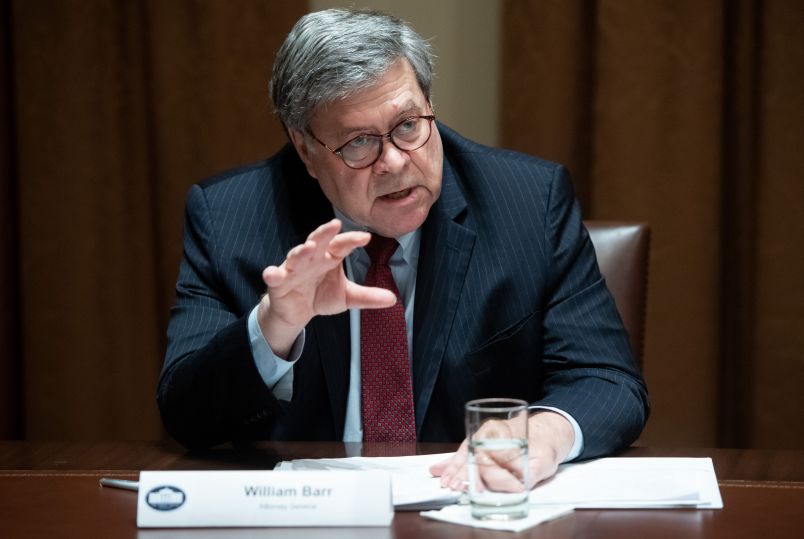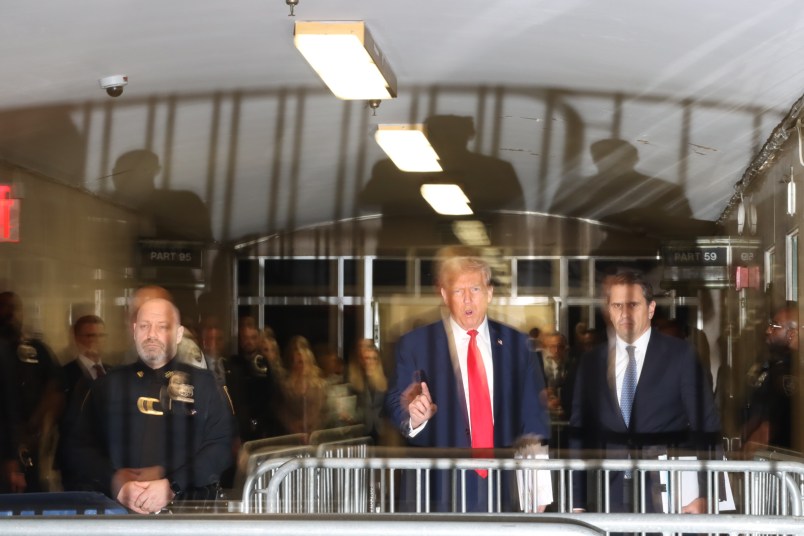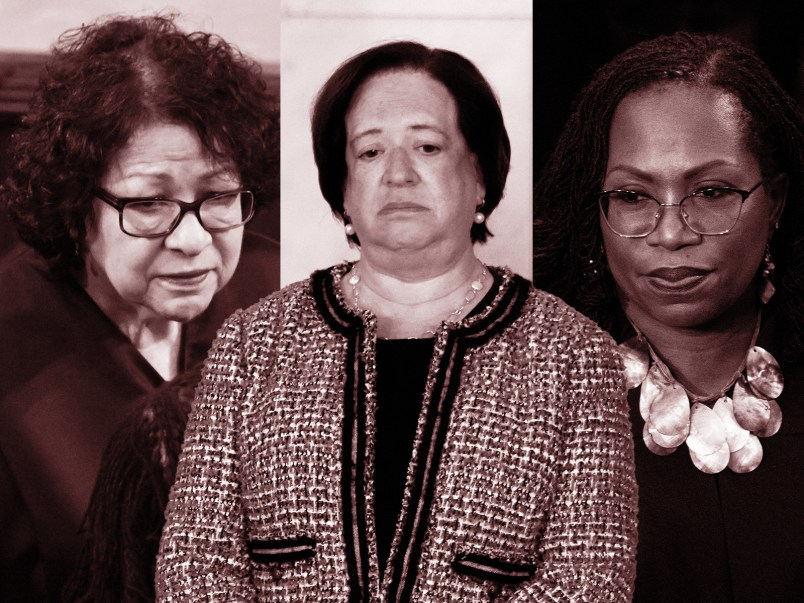The Justice Department under President Trump made misrepresentations about an internal memo related to the Mueller report that it has sought to withhold from public view, a judge said Monday.
The blistering opinion by U.S. District Judge Amy Berman Jackson concerned an Office of Legal Counsel memo that was drafted in the key weekend between when special counsel Robert Mueller issued his report to Attorney General Bill Barr and when Barr released a public letter to Congress ostensibly “summarizing” the report.
The Justice Department in the case has argued it was allowed to withhold parts of the memo that it said amounted to legal advice to Barr on whether to prosecute Trump based on Mueller’s investigation. But the judge said Tuesday that, having viewed the full memo herself, the Department’s “incomplete explanations” of the memo “obfuscate the true purpose of the memorandum.”
The department had produced a partially redacted version of the memo, which had been requested under the Freedom of Information Act by the watchdog group Citizens for Responsibility and Ethics in Washington (CREW). Judge Jackson has now ordered the department to produce the memo in full, but is giving the department two weeks to say whether it wants her ordered paused for an appeal.
She said that the department had made a “misrepresentation” about the purpose of the memo and engaged in a “the lack of candor” about its content. She said that CREW, while never laying “eyes on the document,” had supplied a summary “more accurate than the one supplied by the department’s declarants” in its filings alleging that the memo was being illegally withheld.
Much of Jackson’s opinion itself is redacted, including portions that describe the parts of the memo that the DOJ has refused to release. But the unredacted portions include assertions that the department misled the court about the nature of the memo and why it should be exempted from FOIA.
One of the exemptions the department cited was attorney-client privilege, as the memo was supposedly offering legal advice for Barr from the OLC, which acts as the department’s in-house legal counsel. The department had also claimed that the memo fit in a FOIA carveout for “predecisional” deliberations, i.e. discussions about an issue before a decision was made. In its filings in the case, the DOJ described the redacted portions as giving advice to Barr about whether the department should pursue or decline a prosecution of then-President Trump based on the obstruction of justice evidence laid out in Mueller’s report.
But, according to the judge, the department had already made the decision that it was not going to prosecute Trump. She cited DOJ email traffic from that weekend — also obtained via FOIA — that showed top DOJ officials had already written and finalized the letter to Congress announcing the department would not be prosecuting Trump for obstruction while the OLC memo was still being edited.
“The emails show not only that the authors and the recipients of the memorandum are working hand in hand to craft the advice that is supposedly being delivered by OLC, but that the letter to Congress is the priority, and it is getting completed first,” Jackson wrote.
Furthermore, Judge Jackson herself ultimately reviewed the redacted sections of the memo. She learned that one of the sections offered not legal advice, but “strategic” advice and recommendations, her opinion said, a “subject that the agency omitted entirely from its description of the document or the justification for its withholding.”
The redacted portions of that section “reveal that both the authors and the recipient of the memorandum had a shared understanding concerning whether prosecuting the President was a matter to be considered at all,” she said in her opinion.
“In other words, the review of the document reveals that the Attorney General was not then engaged in making a decision about whether the President should be charged with obstruction of justice; the fact that he would not be prosecuted was a given,” she said. “The omission of any reference to Section I in the agency declarations, coupled with the agency’s redaction of critical caveats from what it did disclose, served to obscure the true purpose of the memorandum.”
Barr’s handling of the Mueller report release was an early example of how he would repeatedly politicize the department. As the judge noted, he compressed 400 pages of evidence into a less than four page summary that Trump then used to declare himself “to have been fully exonerated.”
Only three weeks later — and after Mueller made an extraordinary statement expressing discomfort with how his report had been summarized — did the department release the report itself with redactions. It revealed that Barr had played down the evidence Mueller had found of obstruction and obscured Mueller’s reasoning for not deciding whether to recommend charges.
Read the opinion below:










